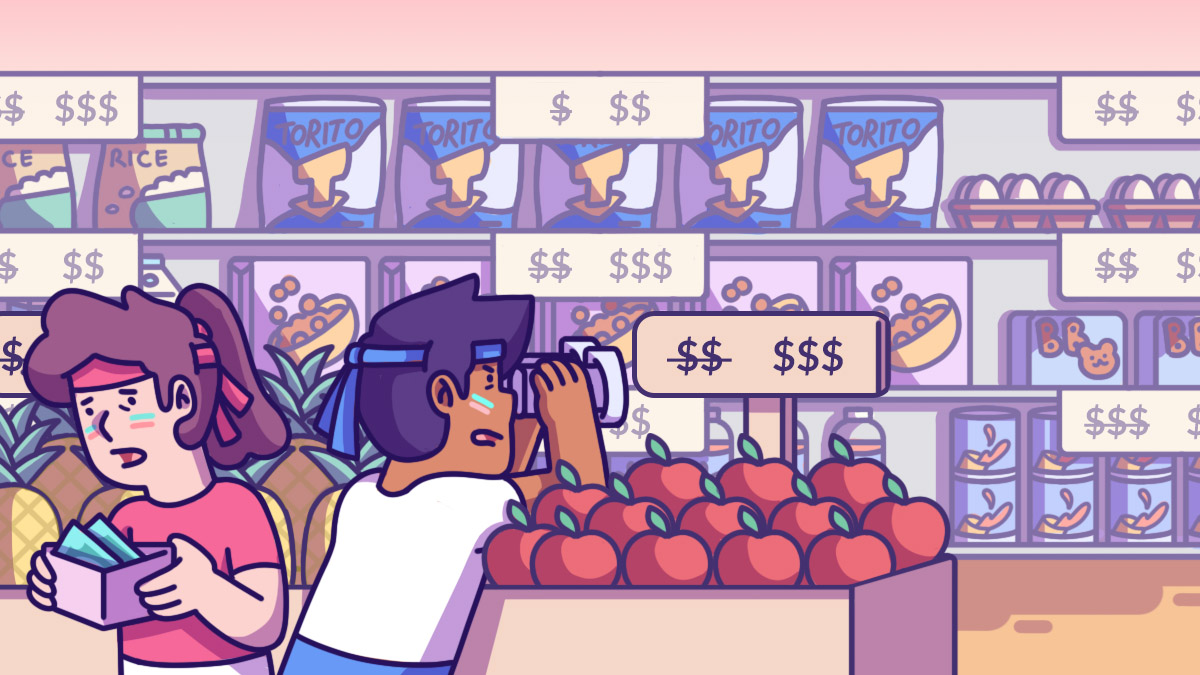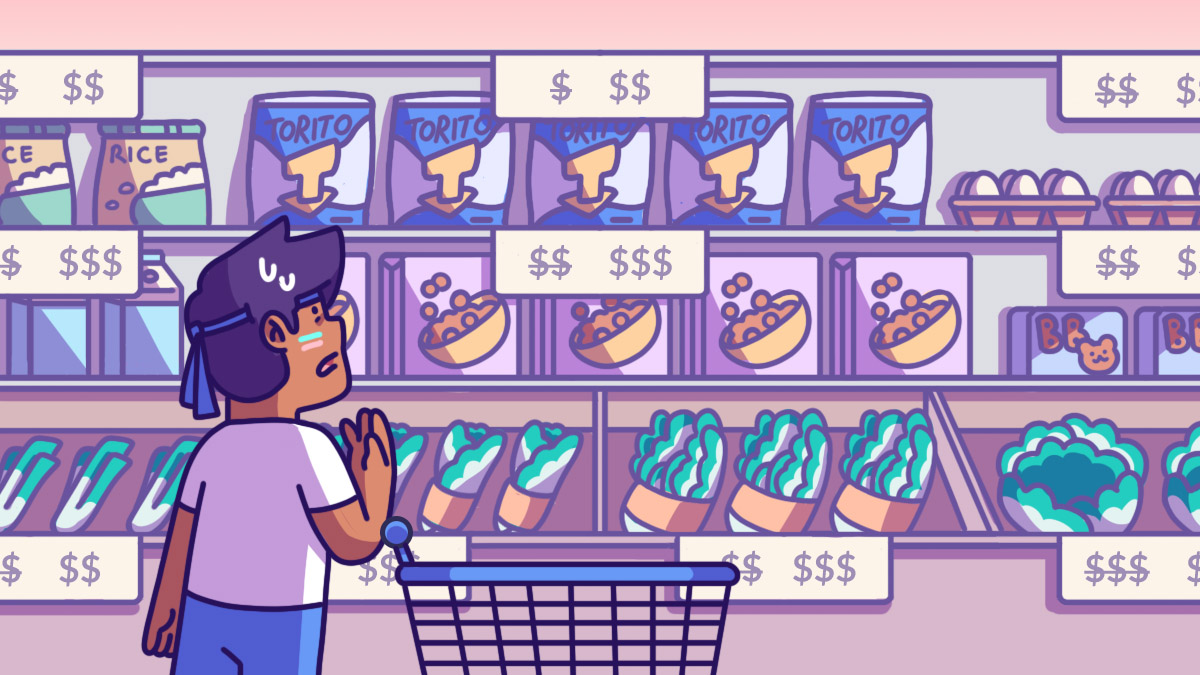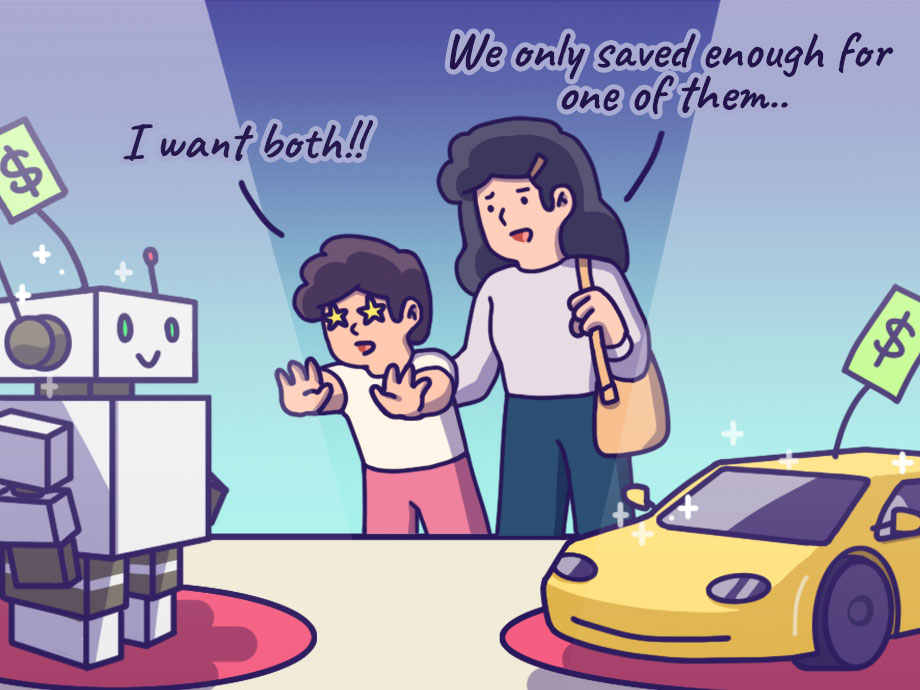Personal Finance | Article
Are You Ready for the Inflation War in Malaysia?
by Lionel | 22 Dec 2022

Inflation is a nine-letter bad word that’s on everyone’s lips these days. It doesn’t matter if you are living in the United States, the Philippines or in Singapore, we are all feeling the pinch from inflation as the prices of almost everything we use in our daily lives have gone up.
Here in Malaysia, 89.1% of food and beverages prices have increased according to the Department of Statistics Malaysia’s April consumer price index report. In less than a year, the price of cut chicken rose from RM19.90 to RM25.90, five kilograms of Buruh cooking oil from RM18.90 to RM30.90 and one kilogram of flour from RM2 to RM3.60.
Even the popular budget chain store Eco-shop couldn’t escape the impact of inflation this year. Best known for selling household items at RM2.40 each, the chain raised its prices to RM2.60 this June because of cost increases.
We decided to dig deeper into the inflation conversation and find out how high inflation can affect you and your finances.
Let’s start with “What is inflation”?
The International Monetary Fund or IMF describes Inflation as “the rate of increase in prices over a given period of time”. It basically means everything becomes more expensive as time goes on.
Another way of looking at it is that your ringgit is worth less over time because you won’t be able to buy as many things with it than you previously would have. For example, RM1 could get you three pieces of roti canai at the hawker 40 years ago but it can’t even get you a piece today.
Theoretically, a small amount of inflation can be good for a country as it drives economic growth. But in 2022, we’re seeing unprecedentedly high inflation rates that has made our cost of living a lot more expensive in a short span of time.
How much Inflation is there?
Malaysia’s inflation rate in September 2022 was 4.5% based on information from the Department of Statistics Malaysia. It was only 2.5% in 2021.
However, food inflation stood at 6.8% this September. If you are calculating in terms of teh tarik, your RM1.80 glass would have inflated to RM1.90.
Related
Where did all this Inflation come from?
Inflation is triggered by cost-push factors and demand-pull factors. The increase in labour costs, and the cost of materials is an example of a cost-push factor that triggers inflation.
Demand-pull factor is when the demand for an item increases, but the supply for it remains the same or decreases. When supply cannot meet growing demand, prices are “pulled” upwards.
How does inflation hurt your savings?
To give you a clearer picture, if inflation is sustained at 3% annually, your purchasing power is reduced by almost 60% over 30 years. Therefore, your RM1 can only buy 40 cents worth of goods in 30 years.
So, if you have RM600,000 in your Employees Provident Fund (which is the amount EPF recommends you need to retire comfortably), your retirement savings would be worth RM325,200 in today’s value.
The Inflation War
Malaysia’s inflation has been exacerbated by several international events.
The Russia-Ukraine war happening thousands of miles away has increased the price of raw material, fuel, freight charges and food items globally.
In the US, their Federal Reserve System has implemented multiple interest rate hikes this year, which has driven up borrowing costs and also contributed to higher inflation in Malaysia.
What we end up with is less savings after we pay for the higher cost of food, housing, and transport. You’ll be amazed at how little your RM50 can buy these days.
It may lead you to downsize your home and skimp on food. If you’re thinking of starting or expanding your family, inflation is going to make you think twice. It may transform many of us into cheapskates.
And there’s no escaping it. Now that you know what inflation means, should you be concerned about it? Here’s what you can do to combat inflation and save your wallet if your answer is a resounding yes.



















